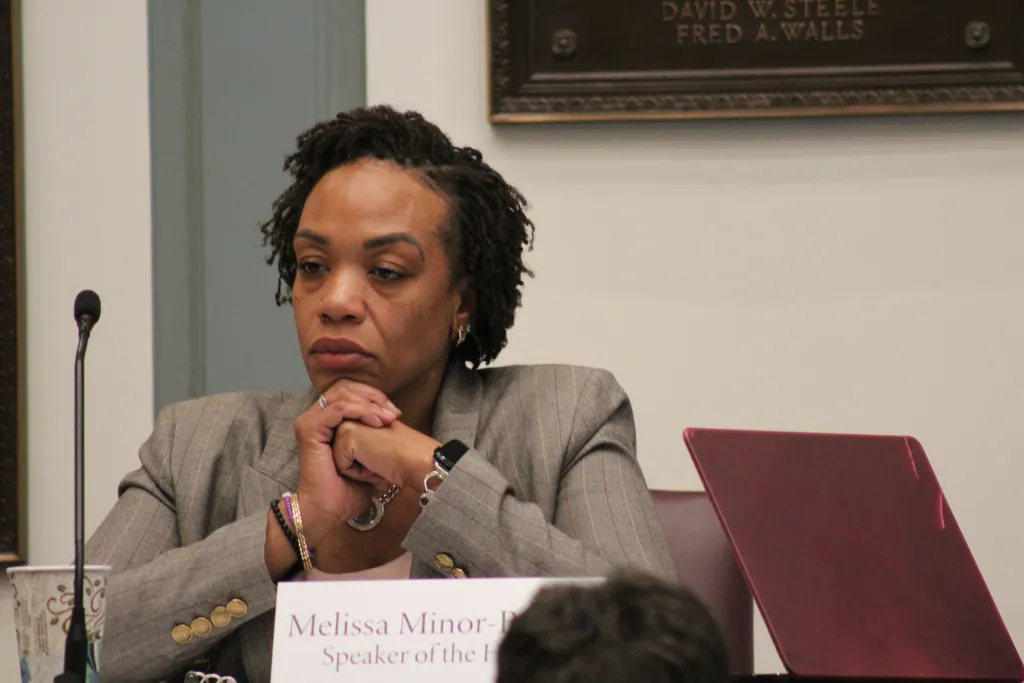
Why Should Delaware Care?
An oversight board charged with monitoring hospital budgets and reducing health care spending in the state has been under constant scrutiny since its inception last year. This week, ChristianaCare – the state’s largest hospital – and Gov. Matt Meyer agreed to proposed changes that would water down the board’s authority.
ChristianaCare, Delaware’s largest and most influential hospital system, tentatively agreed to end its lawsuit challenging the state’s hospital oversight board, in exchange for lawmakers removing the board’s key enforcement mechanism.
The agreement, announced by Gov. Matt Meyer’s office on Wednesday, pauses the ongoing legal battle until the new year. But if the state fails to enact legislation removing the key oversight ability of the board, known as the Diamond State Hospital Cost Review Board, to modify and veto hospital budgets it deems excessive by the end of January 2026, the lawsuit may continue.
One lawmaker, who would need to shepherd any new bills to the governor’s desk within the first two weeks of next year’s legislative session, said legislators were not involved in discussions about the agreement, and that they found out about the proposals after the agreement was signed.
Some other proposed changes outlined in the agreement include limiting the amount of salaries shared with the board, delaying enforcement of excessive spending, and making reviews retrospective, instead of proactive.
The agreement also said the state would consult the Delaware Healthcare Association, the state’s chief hospital lobbying organization, before any future appointments to the board. This appears to be a reference to former Gov. John Carney appointing a majority of the board prior to Meyer taking office.
If all the proposed changes to the review board pass the legislature, they could water down its ability to regulate hospitals and gain public insights into the inner-workings of Delaware’s health care system.
The board would review financial and operational information submitted by health systems – some of which is already publicly available from their tax filings, and some that is currently private like service utilization rates – but would have little power to hold them accountable to changes. The systems would be required to demonstrate efforts to reduce costs to consumers, but the board would have no way to enforce them. Sanctions of $500,000 would only apply if a system failed to submit the required reports.
The governor’s office denied the board’s effectiveness would be impacted by any of the proposed regulatory changes.
“The governor negotiated terms that will lower the cost of health care, create jobs, and establish a robust system for transparency,” Meyer’s spokesperson Mila Myles said. “The agreement introduces the concept of cost-containment arrangements intended to deliver a measurable impact on reducing rising costs.”
ChristianaCare declined to comment beyond its joint statement with the governor’s office.
Where does the board go from here?
A crux of the agreement between the hospital and the state is that the legislature would move quickly to draft and approve amendments to House Bill 350, which created the review board.
The agreement says if the state does not introduce legislative amendments by Jan. 13 – the first day of the 2026 legislative session – and have them approved by Jan. 31, the lawsuit would continue. The governor’s office said it thinks those deadlines are realistic.
Senate Majority Leader Bryan Townsend (D-Newark) said in an interview Wednesday that legislators weren’t involved in the settlement talks, and that there are “questions” about the process used to reach the agreement.
He said when the bill was passed in 2024, it had support from groups including teachers, police officers and state employees who were frustrated with growing health care costs.
When asked about the request to strip the board’s budget veto powers, Townsend pointed to an attempt by the legislature to remove it earlier this year. He claimed the hospitals opposed the changes, and said he believes it was “because it would have removed their leverage in a lawsuit.”
Townsend added the reason the legislature added that enforcement tool was because of the “little good faith” from the hospitals during the legislative process.
“You want a framework that’s got accountability on its face, but it all the more so seemed important, given how difficult the hospitals were being to have anyone even try and touch their fiefdoms,” Townsend said.
He said as legislators begin to work on any proposed bills, it “shouldn’t settle for less,” when it comes to bringing down prices in the state.

In a text message, House Speaker Melissa Minor-Brown (D-New Castle) said in January lawmakers would pass legislation that reflects the “intent of HB 350 and the needs of Delaware families.”
“HB 350 was about bringing transparency to Delaware’s healthcare system and helping control rising costs — never about taking resources from hospitals or healthcare workers,” Minor-Brown said.
Brian Frazee, president and CEO of the Delaware Healthcare Association, said in a Wednesday morning statement the announcement was an “important step toward accomplishing our shared goals.”
“We stand ready to partner with the state and our health care partners to advance legislation that codifies this agreement and ensures affordable, accessible, and quality health care for generations to come,” Frazee said.
If the proposed changes pass the legislature, the Delaware Healthcare Association would be more involved in the selection of review board members.
Meyer’s office has questioned the qualifications of the current board members, saying most members appointed by Carney don’t have a background in health care and were “rushed through during a special session at the end of the last administration’s term, all while facing a legal challenge.”
How did we get here?
In 2024, the Delaware legislature passed House Bill 350, which established the Diamond State Hospital Cost Review Board. The law would later be signed by former Gov. Carney.
The board was tasked with reducing hospital spending in Delaware, and given the power to veto hospital budgets it deemed excessive.
Prior to the law’s passing, the state’s hospital systems blitzed the statehouse, attempting to lobby lawmakers against the bill. Ultimately, that effort failed, and House Bill 350 was signed into law.
Shortly after, ChristianaCare sued the state. In its lawsuit, the hospital called the review board “draconian,” and said its ability to reject hospital budgets violated the state’s corporate charter.
State lawyers denied those claims, saying the regulations have nothing to do with Delaware’s corporate law. In previous court filings, they further said that ChristianaCare’s arguments amount to an “army of strawmen” designed to halt the regulations.
Following an attempt by the state to dismiss the lawsuit, a judge in Delaware’s Court of Chancery allowed the lawsuit to continue.
Touching on Delaware’s corporate-friendly ethos, the judge said the question of whether the state board’s authority over hospital budgets unconstitutionally usurps a hospital board of directors has merit.
“In Delaware, the managerial power of boards of directors is sacrosanct,” said the judge, Vice Chancellor Lori Will.
On his way out of office, Carney stacked the board with five of its seven appointed board members, leaving Meyer only two appointments. Once inaugurated, Meyer tapped two longtime ChristianaCare executives to serve on the board.

One of those Carney-appointed members, the former Secretary of Finance and chair of the board, Rick Geisenberger, stepped down as chair after a spat with Meyer.
In a letter to Meyer sent on June 7, Geisenberger recounted how he had declined the governor’s request to cancel meetings of the board, saying instead that the public body was “duly authorized” by the legislature and had a responsibility to perform its business “impartially and free from undue influence.”
“You have stated to me that holding any further meetings of the Board at this time would be a waste of State resources in light of recent developments and uncertainties,” Geisenberger said in a reference to the ongoing lawsuit.
Soon after, the state and ChristianaCare agreed to hold proceedings on the lawsuit until Sept. 30 in “the interests of the parties and the public.”
According to the agreement, the board would still operate, and current board members would remain seated.
“The core of HB 350 remains: Hospitals must present detailed budget information annually to the Board, and the Board determines compliance with the State’s healthcare spending benchmark,” the agreement said.





